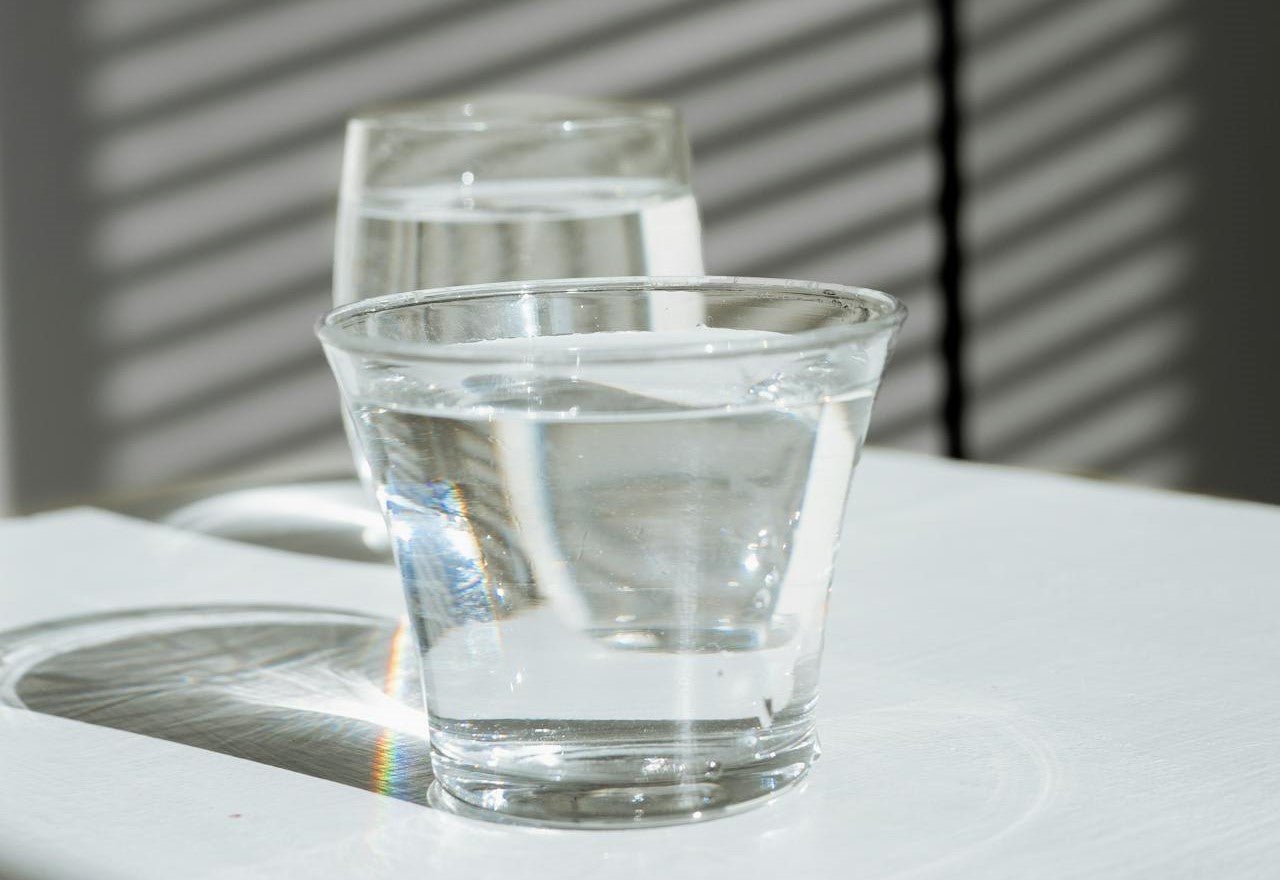The Ultimate Guide to Water Filters: Protecting Your Family and Health
Clean, safe drinking water is essential for your health and well-being, but with so many contaminants present in our water supply, it can be challenging to know whether the water from your tap is truly safe. In this guide, we’ll explore the benefits of water filters, how to choose the best water filter for your needs, and why filtered water is an investment in your health.
Why Clean Water is Essential
Water makes up approximately 60% of the human body, and it's crucial for everything from digestion and nutrient absorption to maintaining healthy skin and proper cell function. However, what’s in your water is just as important as how much you consume. Contaminants like chlorine, fluoride, heavy metals, and bacteria can be found in tap water, potentially posing risks to your health.
These harmful substances can contribute to skin irritation, digestive issues, and long-term health problems. For example:
- Chlorine can dry out skin and hair, contributing to skin conditions like eczema.
- Lead exposure can result in developmental problems, especially in children.
- Fluoride can contribute to tooth discoloration or fluoride toxicity over time.
Therefore, it's essential to ensure your water is filtered to provide pure water free of harmful contaminants. Fortunately, there are various types of water filters on the market that can remove these impurities effectively.
Types of Water Filters
When it comes to choosing the best water filter for your home, it’s important to understand the various types available and how each works. From countertop systems to pitcher filters, here’s an overview of some of the most popular water filtration options:
1. Countertop Water Filters: Convenient and Effective
A counter water filter sits on your kitchen counter and is connected directly to your faucet, allowing you to filter your water quickly and easily. These systems are a great option for people who don’t want to install a permanent filtration system, such as reverse osmosis. Many countertop water filters use activated carbon, which adsorbs contaminants like chlorine, heavy metals, and other chemicals, leaving you with pure water that tastes and smells better.
Benefits of Countertop Water Filters:
- Easy installation and maintenance.
- Affordable compared to whole-house filtration systems.
- Effective at removing chlorine, lead, and other harmful substances.
2. Pitcher Filters: Compact and Convenient
Pitcher filters, like the PitcherPro Glass Filter available on Tantara, offer a simple and efficient solution for those seeking clean water without the complexity of plumbing installations. This filter uses advanced filtration technology to remove common contaminants like chlorine, heavy metals, and other chemicals found in your tap water. Simply fill the pitcher, and the filter does the work, providing fresh, pure water.
Why the PitcherPro Glass Filter is the Best Choice:
- Glass design: Made from premium glass, the PitcherPro Glass Filter is both eco-friendly and aesthetically pleasing, ensuring your water is filtered in a non-toxic container.
- Advanced filtration: The filter’s advanced multi-stage system removes chlorine, heavy metals, and organic compounds, improving both the taste and quality of your water.
- Convenience: With a pitcher filter, you can have fresh water whenever you need it, without requiring a complicated installation process.
The Benefits of Choosing a Glass Filter:
- The glass material doesn’t leach harmful chemicals, unlike some plastic containers.
- The PitcherPro Glass Filter is perfect for both home and office use, making it a versatile option for your family’s hydration needs.
3. Reverse Osmosis Systems: High-Purity Water
Reverse osmosis (RO) systems provide one of the most thorough filtration methods available. These systems force water through a semi-permeable membrane, which removes dissolved salts, heavy metals, bacteria, and other harmful contaminants. The result is pure water with a crisp, clean taste.
Benefits of Reverse Osmosis Systems:
- Highly effective at removing contaminants such as lead, chlorine, fluoride, and heavy metals.
- Produces some of the cleanest water available.
- Ideal for homes with specific water quality issues, such as high mineral content or chemical contamination.
4. Activated Carbon Filters: Improve Taste and Smell
Activated carbon filters are a popular choice for improving the taste and smell of your water. These filters work by adsorbing impurities like chlorine, volatile organic compounds (VOCs), and bad odors, providing clean water that tastes and smells fresh. While activated carbon filters don’t remove all contaminants, they’re effective at improving the overall quality of your drinking water.
Benefits of Activated Carbon Filters:
- Removes chlorine and unpleasant odors from water.
- Improves the taste of tap water for a better drinking experience.
- Affordable and easy to install.
5. Spring Water vs. Filtered Water: Which is Better?
When shopping for water, you may be faced with a choice between spring water and filtered water. While both options can provide clean, safe drinking water, they come from different sources and have distinct benefits.
Spring Water:
- Naturally sourced from underground springs, often rich in minerals like calcium and magnesium.
- Tastes fresh and crisp, with a more natural composition.
- May not always be filtered for harmful contaminants, especially if sourced from less regulated regions.
Filtered Water:
- Purified through various filtration methods to remove harmful substances such as chlorine, lead, and bacteria.
- Ideal for people who want to ensure their water is free from contaminants, regardless of its source.
- Can be more affordable and convenient than purchasing bottled spring water.
What Does a Water Filter Remove?
Different water filters are designed to remove various contaminants, depending on the filtration method used. Common substances removed by high-quality filters include:
- Chlorine: Often added to municipal water supplies to disinfect, but it can cause skin irritation and dry hair.
- Lead: A toxic metal that can leach into water from old pipes, posing health risks, especially to children.
- Fluoride: While added for dental health, some people choose to filter fluoride from their water due to health concerns.
- Heavy Metals: Contaminants like mercury, arsenic, and cadmium can contaminate water through industrial processes or pollution.
- Bacteria and Viruses: Some filters, like reverse osmosis, are effective at removing microorganisms that can cause illness.
How Does a Water Filter Work?
Water filters work through different processes depending on the type of filter. Activated carbon filters adsorb contaminants, reverse osmosis uses a semi-permeable membrane to separate impurities, and pitcher filters, like the PitcherPro Glass Filter, use multi-stage filtration to remove chlorine, heavy metals, and other harmful substances.
Choosing the Best Water Filter for Your Home
When choosing the best water filter for your needs, consider the following factors:
- Water Quality: Test your water to determine the types of contaminants present.
- Type of Filter: Choose between countertop filters, pitcher filters, reverse osmosis systems, and more.
- Budget: Consider the initial cost of the filter as well as ongoing maintenance, such as filter replacements.
- Space: Consider how much space you have available for installation.
Conclusion: Protecting Your Family’s Health with Clean Water
Investing in a high-quality countertop water filter or pitcher filter like the PitcherPro Glass Filter is one of the easiest ways to ensure that your family has access to clean, pure water every day. Whether you’re concerned about chlorine, lead, or other contaminants, a water filter can provide peace of mind and contribute to better health. By choosing the best water filter for your home, you’re making an investment in your health, your skin, and your family’s well-being.








